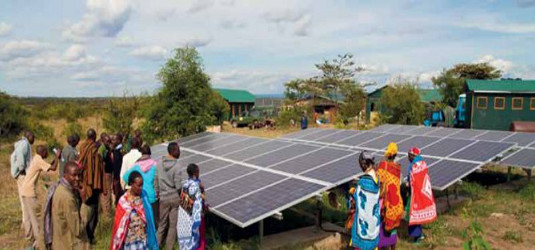The European Commission (EC) has announced it will provide the Africa Renewable Energy Initiative (AREI) with €300 million in funding. The EC said that the funds will be used to leverage approximately €4.8 million ($5.0 billion) in new investments and to help finance 19 renewable energy projects totaling about 1.8 GW. The EC has not specified how much of these funds will be devoted to solar projects.
The funds will be provided through existing financial mechanisms such as the Africa Investment Facility (AfIF) and the Electrification Financing Initiative (ElectriFI), and new instruments like the External Investment Plan.
The EU stressed that its funding for renewable energy development in Sub-Saharan Africa for the period 2014-2020 amounts to approximately €2.7 billion.
The AREI is an initiative of the African Union, a Pan-African organization which promotes cooperation among the independent nations of Africa. The AREI aims at installing up to 10 GW of new renewable energy generation capacity by 2020.
The organization promotes all kinds of renewable energy technologies, in particular solar, wind, hydro, biomass, geothermal and marine power, and the full range of renewable electricity applications from grid-connected to mini-grids to small stand-alone systems.
The initiative is now in its Phase I (2017-2020), during which assessments, preparations and critical enabling activities will be implemented. Phase II (2020-2030) is expected to see the roll-out of nationally determined policies, programs and incentives.
This content is protected by copyright and may not be reused. If you want to cooperate with us and would like to reuse some of our content, please contact: editors@pv-magazine.com.




By submitting this form you agree to pv magazine using your data for the purposes of publishing your comment.
Your personal data will only be disclosed or otherwise transmitted to third parties for the purposes of spam filtering or if this is necessary for technical maintenance of the website. Any other transfer to third parties will not take place unless this is justified on the basis of applicable data protection regulations or if pv magazine is legally obliged to do so.
You may revoke this consent at any time with effect for the future, in which case your personal data will be deleted immediately. Otherwise, your data will be deleted if pv magazine has processed your request or the purpose of data storage is fulfilled.
Further information on data privacy can be found in our Data Protection Policy.